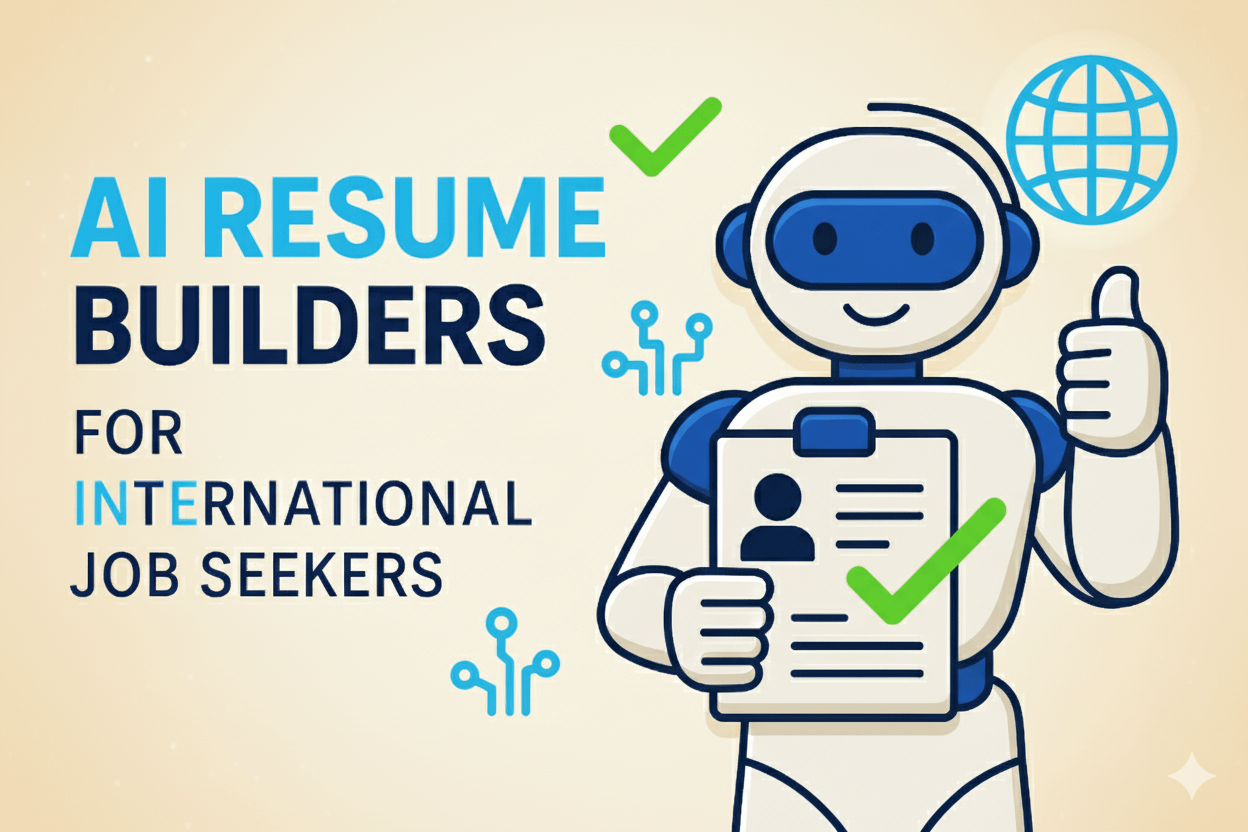How To Find Your First Job in Canada?
Canada is a place full of opportunities, offering a dynamic culture, varied environments, and a robust economic scene. When eyeing a career in Canada, it’s crucial to get to grips with the different work permits and rules that match your background and current situation. This guide aims to make the journey smoother for international students, tourists, or anyone aspiring to find a job in Canada as you seek out your initial job opportunity.
Employment Based on Your Immigration Status
Firstly, it’s important to review your visa and work permit details. The type of work you’re eligible for in Canada is closely tied to your individual background and the category under which you’re currently residing in the country.
Work permits are tailored to your specific needs and situation, and here are the various options:
Employment with a Study Permit
International students in Canada may find working during their studies to be a beneficial arrangement. Your study permit needs to specifically state that you’re allowed to work either on-campus or off. Below are situations where additional work permits are not necessary:
- Work on Campus: If you’re a full-time student at a designated learning institution, like a university or college, including trade and technical schools or CEGEP in Quebec, you’re permitted to work on the premises of the institution.
- Work in Quebec’s Private Schools: Students enrolled in certain private schools in Quebec that abide by public school standards have the flexibility to work on or off the campus.
- Vocational Programs in Quebec: Students engaged in qualifying vocational study programs at either public or private institutions in Quebec that last at least 900 hours and lead to a DVS or AVS certification are allowed to undertake work without requiring a separate work permit.
Employment with an Employer-Specific Work Permit
Securing a particular job offer in Canada typically requires an employer-specific work permit. For this, your employer should supply you with an employment contract and, depending on the situation, either an LMIA (Labour Market Impact Assessment) or an offer of employment number if you’re exempt from the LMIA requirements. This permit will enable you to work for that employer in Canada under the specific terms laid out in the permit, which includes details such as the employer’s name, the length of your employment, and the location of your work, if it is relevant.
Working with an Open Work Permit
An open work permit provides foreign nationals with the flexibility to work for any employer across Canada for a set period. The issuance of open work permits is limited to certain conditions, including exemptions from the Labour Market Impact Assessment (LMIA). Open work permits come in two varieties:
- Unrestricted Open Work Permits: This type of permit places no limits on the type of job or location where you can work, giving you a wide range of freedom in your employment choices.
- Restricted Open Work Permits: These permits include specific limitations that could be related to your health status or the category of your work permit. For instance, you might face restrictions on where you can work, especially if your permit falls under certain categories like the provincial nominee program.
Working with an Employer-Specific Work Permit
Securing a job in Canada may require you to obtain an employer-specific work permit, especially if you’ve received a particular job offer. For this, your future employer needs to supply you with an employment contract and, depending on the situation, either a Labour Market Impact Assessment (LMIA) document or an LMIA-exempt offer of employment number. This permit dictates that you can only work under the conditions laid out in your permit, which typically include the employer’s name, your job’s duration, and the work location.
Employment on a Visitor Visa
Holding a visitor visa doesn’t automatically entitle you to work in Canada, as it’s illegal to engage in work that competes in the Canadian job market under this status. However, should you land a valid job offer while in Canada on a visitor visa, you can apply for a work permit from within the country, allowing you to transition to employment without needing to leave.
Employment with an Electronic Travel Authorization (ETA)
Though an ETA is necessary for flying to Canada, it alone doesn’t permit you to take up work or enroll in studies. You’re required to secure a specific work or study permit in advance of your journey. Once approved for a permit, an ETA is issued automatically, facilitating your travel to Canada.
Understanding the nuances of Canada’s work permit and regulation landscape is crucial for anyone looking to join the Canadian workforce, including international students, tourists with job offers, or individuals seeking employment opportunities. Adhering to the correct procedures and securing the relevant permits are key steps in ensuring a seamless integration into Canada’s labor market.
Job Application Essentials in Canada
Source: Pexels
With an understanding of Canada’s work permit options tailored to your situation, let’s delve into the crucial documents needed to apply for your first job in this welcoming country.
Social Insurance Number (SIN):
A Social Insurance Number (SIN) is mandatory for everyone working in Canada, including foreigners. This nine-digit number is crucial not just for employment but also for accessing various government services and benefits. Here’s how to get your SIN:
- Visit the official Government of Canada website and apply online.
- Select “First Social Insurance Number” from the available options.
- Complete the application form, which will require uploading scanned copies of your original documents.
- Your SIN should arrive by mail within 15 days.
Labour Market Impact Assessment (LMIA):
While you as a foreign worker won’t directly apply for a Labour Market Impact Assessment (LMIA), it’s a critical step for your employer in hiring international talent. An LMIA verifies the need to fill the position with a foreign worker due to the absence of available Canadian candidates.
Resume (CV):
Crafting a resume that meets Canadian standards is key to job hunting success. A Canadian resume should focus on:
- Relevant Skills: Tailor your resume to showcase skills specific to the job, adjusting it for each application to meet the role’s requirements.
- Education: Detail your academic achievements, including any degrees, diplomas, or relevant certifications.
- Work Experience: Describe your previous job roles, particularly those similar to the position you’re applying for, highlighting your achievements and how they align with the new job’s demands.
- Transferable Skills: Point out skills that would be beneficial in various roles within the Canadian work environment.
- Clarity and Structure: Keep your resume clear and well-organized, using bullet points for easy reading, ensuring it’s straightforward for potential employers to scan.
Creating a resume aligned with Canadian norms is a critical step in your job search. By fine-tuning your resume to meet the expectations of Canadian employers, you significantly boost your chances of landing interviews and, ultimately, a job. Remember, your resume is your first impression in the Canadian job market, so dedicating time to perfect it is crucial. Good luck with your job search in Canada!
Spotting and Avoiding Job Scams
Source: Pexels
Recognizing Scams
The primary indicator of a job scam is the request for payment in exchange for job placement services that turn out to be non-existent. Scammers operating under the guise of immigration services might ask for large sums, ranging from $2,000 to $200,000, promising job offers that never materialize.
Remember, legitimate recruiters or agencies earn their fees from employers, not job seekers. You should never have to pay to receive a job offer in Canada. Be vigilant and protect your personal and financial information, including social insurance numbers and bank details.
Legally, it’s forbidden to charge for Canadian job offers or letters. Authentic job offer letters will always be on official company letterhead with clear contact details.
Signs of Fraudulent Offers
- Spelling and grammatical mistakes in job listings.
- Recruiters using non-professional email addresses.
- Lack of interest in your qualifications or experience.
- Offers focusing on work-from-home or self-employment that require upfront payment.
- Requests for payment for training, materials, or supplies.
- Compensation based on commission or unrealistic sales targets.
- Offers that seem too favorable to be true.
Avoiding Scams
Conduct detailed research on any Canadian company that extends a job offer. Genuine companies will have a significant online footprint, including a professional website and authentic reviews from customers or employees.
Be wary of guarantees regarding job processing times, effortless entry into Canada, or unusually high salaries. Immigration matters are exclusively within the jurisdiction of government officials.
Finding Jobs in Canada
For newcomers, several online platforms and job listing sites can simplify the job search process:
- Job Bank Canada: The government’s official job site offers a broad spectrum of job listings across Canada.
- Indeed: A global job search platform providing a variety of job opportunities suitable for newcomers.
- LinkedIn: Not just for networking; its job search functionality helps you find vacancies and connect with hiring managers.
- Glassdoor: Beyond job listings, Glassdoor provides company reviews and salary data to help you make informed decisions.
- Provincial and Territorial Government Websites: Many have dedicated job boards and resources for newcomers, such as student hiring programs.
Leveraging these reliable resources can significantly aid your job search in Canada. Customize your applications and CV for each job, and don’t hesitate to seek support from local organizations designed to assist immigrants.
Conclusion
In summary, beginning a new professional path in Canada presents both opportunities and challenges. From understanding work permit requirements to avoiding job scams and utilizing job search resources, being well-informed is key. Stay updated, tailor your job search strategy to the Canadian context, and make the most of available resources. This approach will help you seize opportunities and build a rewarding career in Canada. Good luck with your job hunt!







